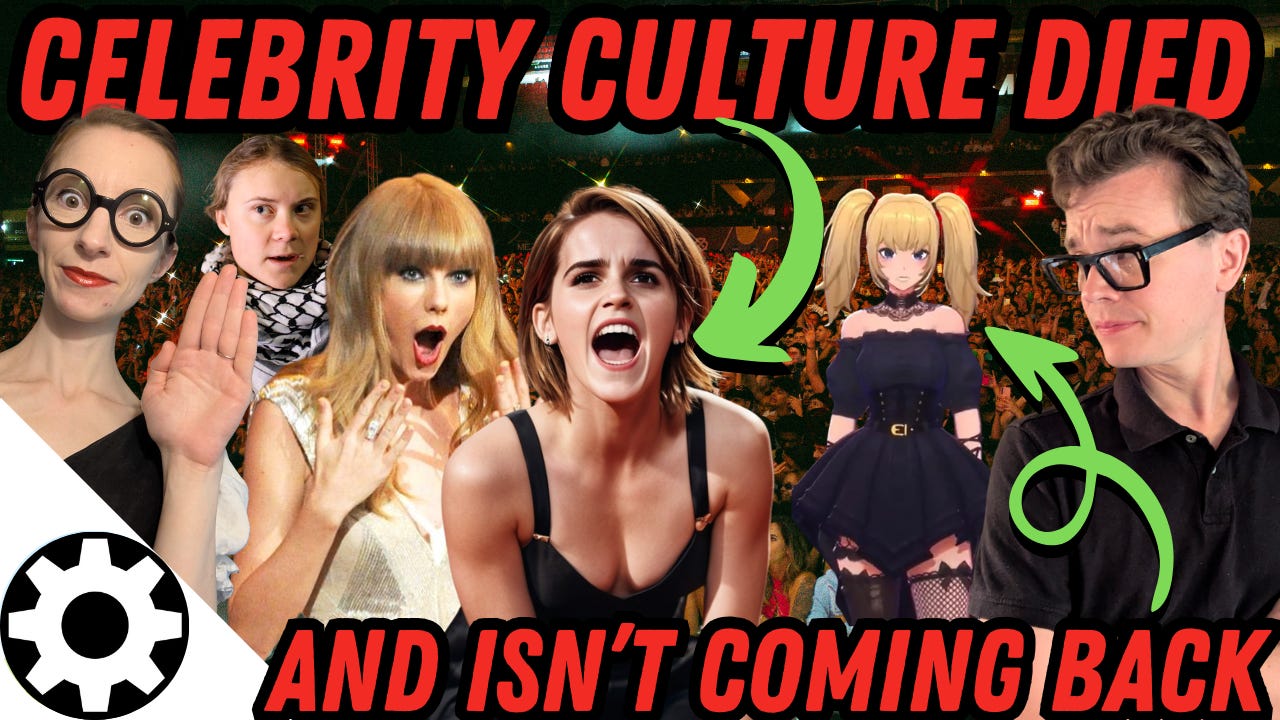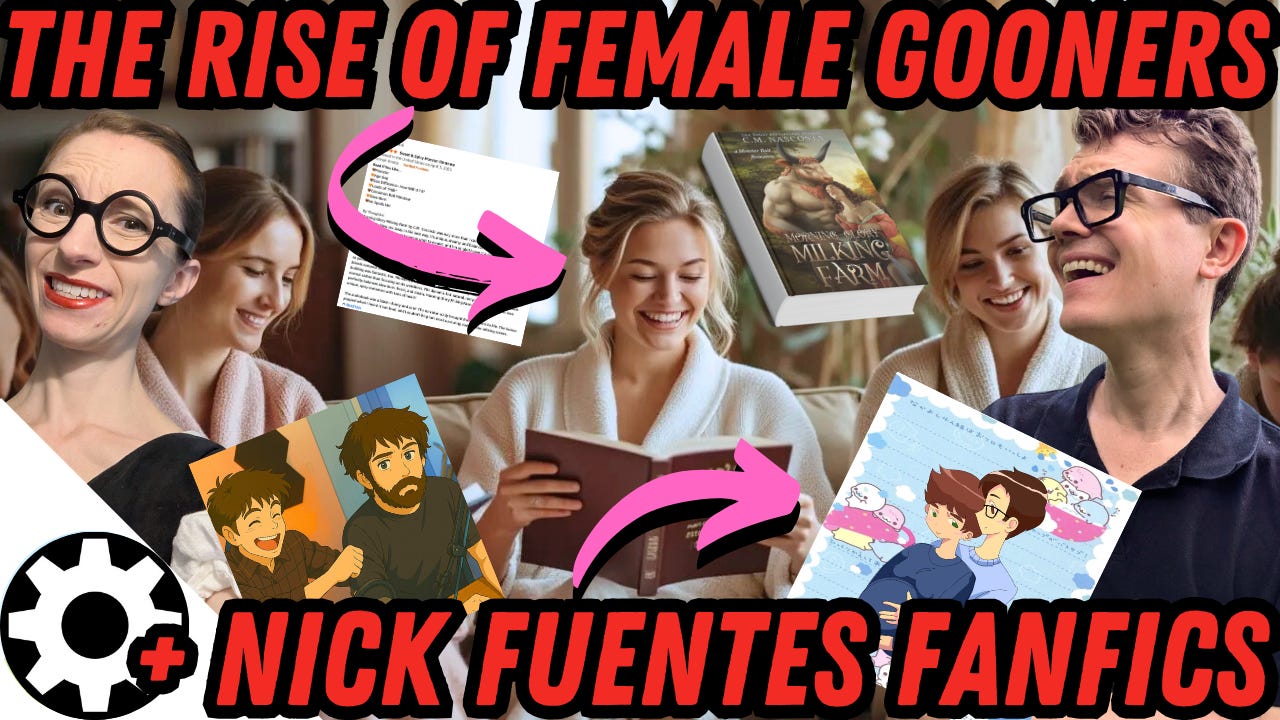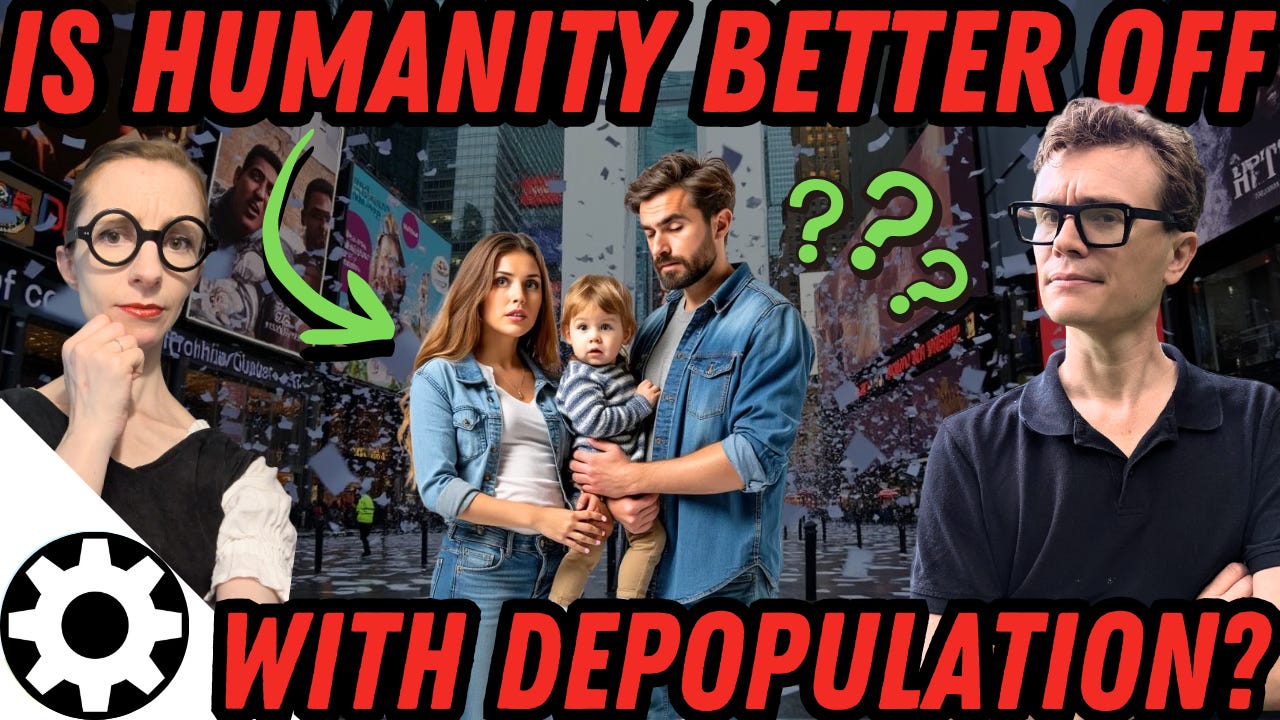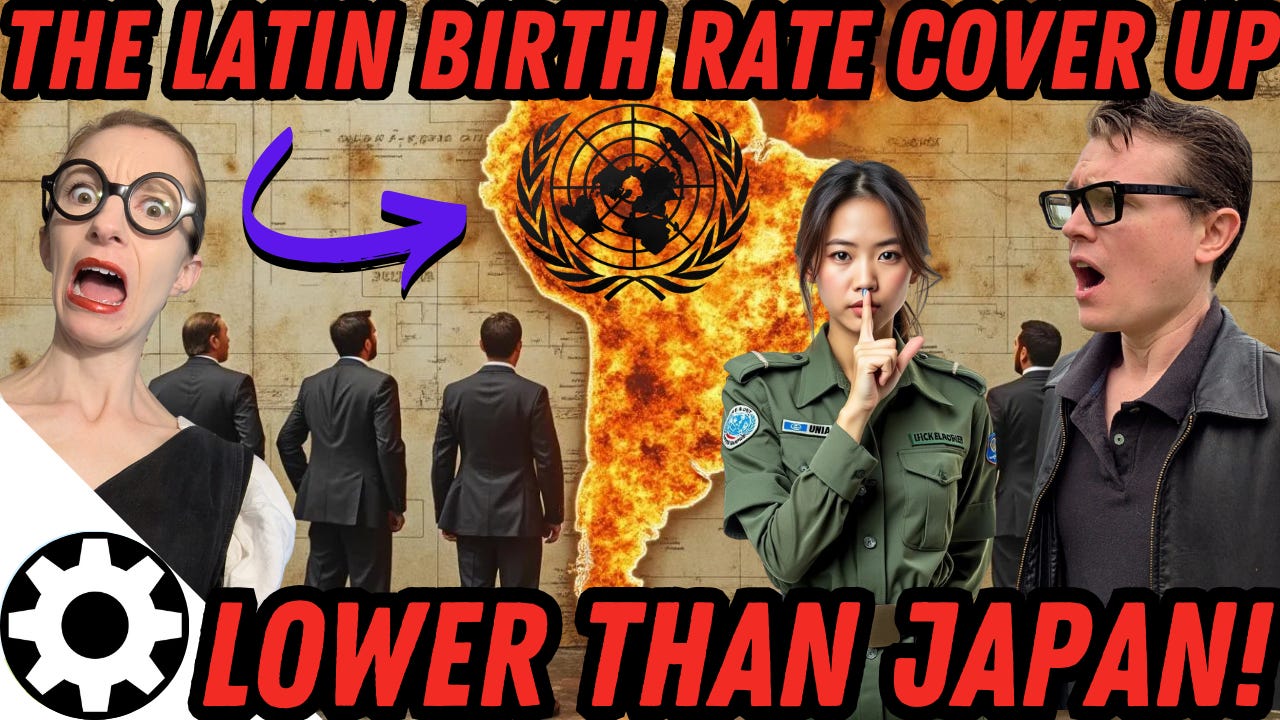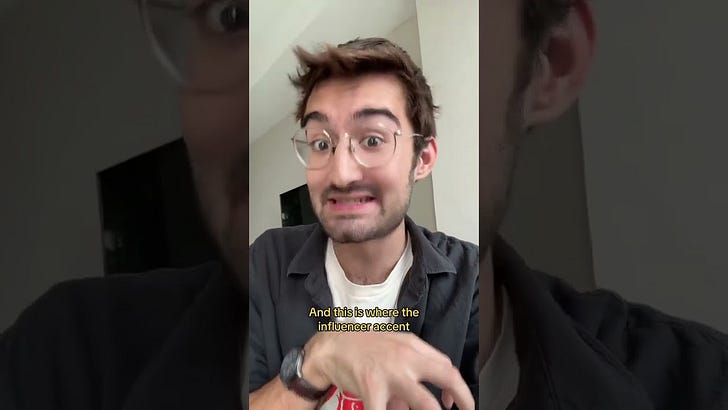Why Movie Stars Stopped Mattering + Why Did They Ever Matter?
Description
In this episode, Malcolm and Simone dive deep into the decline of celebrity culture, using Taylor Swift as a case study for the last era of true pop stardom. They discuss the collapse of the celebrity-industrial complex, the rise of micro-celebrities, and how social media has changed the way we view fame. The conversation covers everything from Emma Watson and JK Rowling’s controversies, to the shifting political and cultural landscape, to the numbers behind Taylor Swift’s recent album and public perception.
Malcolm Collins: [00:00:00 ] Hello, Simone. Today we are going to be doing something of a follow up to an episode that we did recently on that we call the Last Show on Earth on how. You know, sort of Hollywood and, and the Zeitgeist movie, or the zeitgeist television show was no longer a thing. Yeah. And the thing that sort of connected the world was US political theater and, and the conversation around that.
Mm-hmm. The Trump White House, the Trump the, the, the Elon thing, the, the, everything like that, right? Mm-hmm. Today we’re gonna be focused on the other side of this, which it’s the collapse of celebrity culture. And how little relevance, and I think you’ll be shocked by some of the stats that we’re gonna go into celebrities have on our society anymore really.
Yeah, well, there’s been some recent you know, just absolute caning of Emma Watson. I don’t know if you saw this. Oh, yeah. K Rowling. Where Emma Watson is basically like, Hey, you know, I, I’m, I’m best seeds with JK [00:01:00 ] Rowling. I’ll always be friends with her. And it’s like, we remember everything you were saying about her.
You psychopath, like JK Rowling remembers when you thought it was cool to defend this whole trans thing. And, and the gender transition of minors. Forcing women in, in spaces where they are not safe to, to, to have trans women inserted into them, whether it’s it’s it’s prisons or anywhere else.
Mm-hmm. And JK Rowling was like, Hey, can we have like a reasonable conversation about this? Which really, she got de fenestrated before she began to go more and more. Right? Absolutely. It’s very similar to absolutely. Like, why is JK Rowling anti this? It’s like, not for religious reasons, it’s not for discomfort of like a variety of sexual orientations.
Mm-hmm. Like, clearly she’s got some dumbledore’s gay.
Simone Collins: Yes. I
Malcolm Collins: mean, come on. Yeah. She made everyone gay. That was like the thing about her that, that they said where she like, post hoc, make a bunch of Harry Potter characters. Oh, yeah, yeah, yeah. Her retroactive
Simone Collins: ga ification. The double
Malcolm Collins: door I could see do [00:02:00 ] like,
Simone Collins: yeah, that was
Malcolm Collins: is is Emma Watson is now like, oh, I don’t care that much about those Jews anymore.
Now that it’s like everyone can say that publicly now, now that like publicly we’ve accepted. Oh, it doesn’t kill someone to block transition. Which we know now because the UK banned child transition and the unli rate in that population hasn’t increased statistically. So like we have a, an entire country where we have a very big set poll and a very big study that was done on this, and it, it did have the effect
I can only imagine the existential horror of being a trans kid in the UK right now with people trying to get those unli numbers up to actually prove that not transitioning , Minors has any potential negative effects to them.
all you gotta do is just read the words on the teleprompter here. Heh, okay. Let’s see how the
Transphobes. deal with this.
You know, some people say there’s no proof that
Not transitioning children. kills. I guess I’m the proof. By the time you see this commercial, I’ll be dead.[00:03:00 ]
Dead? That was fantastic! , what does that mean, I’ll be dead? That was very good, Eric. Here, eat this cupcake. It has sprinkles. Do you know what a hero is?
A hero is somebody who sacrifices himself for the good of others. You can be a hero, Eric. . Jesus Christ!.
Malcolm Collins: But to not talk on that. I also wanna use Taylor Swiss decline recently in, in sort of the public eye. As, as sort of a framing device for this, because I think in many ways Taylor Swift was the last celebrity the last true pop star that had a giant fan base that cared what they thought, the drama in their lives their politics.
And if, if you are young and you’re watching this, you don’t like get the way it used to be.
Mm,
okay. When I was growing up [00:04:00 ] you would see people, celebrities, like actors whose only qualification is that people knew them as actors. Go on major news stations like CNN, or M-S-N-B-C and give their thought.
On like wars or like political developments. If you watch Team America, world Police, the the Met Stone Tree Parker very good puppet thing, if you haven’t seen it. I, I think it’s hilarious. And it, it’s gotten a lot better with age as well. It’s, it’s like they really predicted a, a sort of zeitgeist.
Mm-hmm. And it’s funny that when it came out, it was considered an anti-Republican movie. Because it was seen as criticizing American foreign policing, which was like a Republican issue. Mm-hmm. And now it would be seen as a pro-Republican issue movie because it’s criticizing America, policing the rest of the world with our troops.
So it’s so interesting that that switch and it went from an anti to a [00:05:00 ] Republican movie.
Simone Collins: There’s the Film Actors Guild. A-K-A-F-A-G. Yes.
Malcolm Collins: The, the, the point I was making here. It’s the cultural power of celebrities was huge. When you walk through checkout lines in, in stores you know, any, any store, any grocery store growing up, I dunno if you have vivid memories of this, you would have these, just like racks of magazines and the magazines would all be covering what was going on personally in celebrities lives. Oh yeah.
Simone Collins: 100% of course. All the, yeah. Did you might remember go through today?
Malcolm Collins: No. Yeah, that’s our baby that she’s showing. That’s, sorry. Yeah.
Simone Collins: I’m constantly watching him on his NICU cam.
Sorry.
Malcolm Collins: Anyway.
Simone Collins: The,
Malcolm Collins: the point here, the celebrity
Simone Collins: gossip mags, I mean, they still exist, Mel. They are, they still
Malcolm Collins: exist, but they are much rarer. Yeah, they’re, they’re not like this dominant in your face screaming at you feature in every checkout. And they’ve
Simone Collins: lost a lot of readership and a lot of [00:06:00 ] viewership too.
I mean, there were also some really big online outlets that were prolific on this front. Perel Perez. Hi Hilton. Stella b****y. I loved for a while, but like now I go on them and I’m like, there’s nothing here. There’s nothing going on. It’s so nothing
Malcolm Collins: going on. Yeah. So this entire industry essentially fell apart.
Mm-hmm. And a another really fun instance of this recently was the spaceship op-ed.
Simone Collins: Oh, you mean when Katie Perry and Mrs. Jeff Bezos went into space like a bunch of other women. Were like, we’re gonna be the first
Malcolm Collins: women, all women in space. Everything is love. I feel so happy is love. Yeah. It was so cha.
What an accomplishment for women. For women. I did it for you young girls. So you could see that one day you could FA rich guy and go into space. Obviously not with like your brains or talent or effort but. What an accomplishment. Very what is it like deep see the [00:07:00 ] submarine thing, you know, like, yeah, the billionaire submarine, but, but the whole I think that the reason why they went up there and they did this is celebrity culture in the nineties was like.
You, you would actually do stuff like this and everyone would be forced to cheer for you. Like, because and if people don’t understand what led to this, I wanna talk about like what led to this before I get into statistics of what caused it all to break apart.
Simone Collins: Okay.
Malcolm Collins: Okay. So, and I think that this is a good instance.
Suppose bunch of pop stars in the nineties decided to be the first all female. Space thing. Okay. How do you the public get your news, right? Like what, what, what outlets do you have access to? Mm-hmm. So you go to early odds nineties. You are getting it from. Tv like CNN you’re getting it from like the Daily Show.
You are getting it from you know, celebrity gossip Rex. Right? The problem is, is that none of those outlets could really criticize because I am a CNN, right? Well, my parent company. [00:08:00 ] Owns the, their, their label company, right? Like my parent company owns for the movie stars. This is especially an issue because they’re often owned by the same companies, right?
Like, this is why it was so hard to criticize Scientology for a long time because the, the actors who are Scientologists would say, well, I won’t promote my movie if the Daily Show or Southpark is criticizing Scientology on another network. Right? Like. And so you basically could not publicly criticize these people, and when you could publicly criticize them, it couldn’t be for something that everyone knew, like they’re self-aggrandizing and went on a ship.
It had to be some sort of gossipy thing. So the information just didn’t go out the

